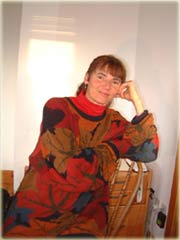
Welcome into my World
Making Dreams Come True
poems about life,
life poetry,
moments of being -
just what is
a moment of being?
NEW BLOGS
Sept 4, 2009
July 29, 2009
May 15, 2009
December 17, 2008
February 5, 2008
February 4, 2008
January 10, 2008
December 7, 2007
December 6, 2007
October 7, 2007
September 30, 2007
September 9, 2007
Sept 8, 2007 - more
September 8 , 2007
June 25, 2007
June 23, 2007 - more
June 23, 2007
June 22, 2007
June 18, 2007
May 28 , 2007
May 20, 2007
April 8, 2007
March 18, 2007
March 10, 2007
January 4, 2007
December 28, 2006
December 14, 2006
December 7, 2006
Oct 26, 2006 - more
October 26, 2006
October 10, 2006
October 09, 2006
September 20, 2006
September 19, 2006
September 18, 2006
Sept 3, 2006
- even more
Sept 3, 2006 -
more
September 3, 2006
August 13, 2006
August 5, 2006
July 31, 2006
July 24, 2006
July 23, 2006
July 9 2006
July 8, 2006
June 21, 2006
June 15, 2006 -
more
June 15, 2006
June 11, 2006
June 6, 2006 - more
June 6, 2006
May 24, 2006
August 17, 2005
August 8, 2005
STAY IN TOUCH
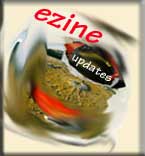
It's so easy
to lose touch.
Click here
to stay in touch
with FREE updates
So here I am,
looking out, wondering.

How to do this?
A big question - how to do this?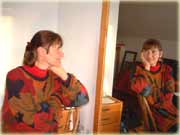
I know it can be done, but
I can do this,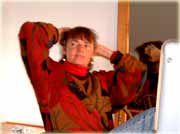
but it takes a lot of doing.
It's easiest in the morning. 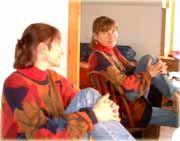
Everything seems possible then.
What do you see when
you see me, I wonder.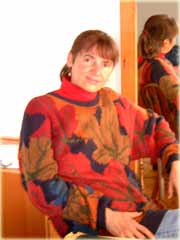
I keep trying. I'm not sure
what will happen. But over
and over again, I keep
trying - because something
in me doesn't give up, not
forever anyway.

Click here to
STAY IN TOUCH
with FREE updates.

life poems -
and about the self

if so, how to find the self?

poems about life -
what do they offer
the reader?
and is the reader
just a heap of fragments?

what is life anyway?

poems about life?
life poetry?
lots of questions
My poems often aim to capture a moment in words.
So they could be called poems about life, life poetry.
Reading about Buddhist teachings of the self brought me to the question:
are these life poems closer to Buddhist teachings, Buddhist beliefs
about the self, rather than Western views of the true self?
POEMS ABOUT LIFE
bring up questions about life and self:
Western
self knowledge versus Buddhist teachings, Buddhist beliefs
When I write, I just write. I don't try to express some world view or another. I just follow the trail of the words coming from within me.
But now I'm thinking about these word pieces, these poems about life, each about a moment of being.
There's something I read the other day that caught my attention: about a huge difference between the Western understanding of self knowledge versus Buddhism teachings, Buddhist beliefs.
Western self knowledge, self expression: there is a self enduring over time, undergoing developments but with an underlying continuity of being. Some call this the true self. Self understanding means gaining ever more self awareness. So if one writes about moments of being, life moments, these moments are understood to be part of a larger continuity of being.
On the other hand, according to Buddhist teachings, Buddhist beliefs (as I read about them rather briefly), one is to gain, through meditation, glimpses of oneself, fragments of disconnected being. One is just to experience these glimpses into oneself, and not connect them into a whole.
Why bring this up? My life poems each express a glimpse, a moment of being. Is it a Western moment? Or is it a disconnected fragment?
For each individual life poem, it's a moot point. It doesn't matter.
But deep down, I've gone for the Western self concept. Over and over, I've taken word pieces and linked them together - stopped them from being just disconnected fragments, individual moments of being, made them part of a larger whole - part of a story.
I haven't wanted to tell a story in the traditional way. She said... He said ... They said ... They did ... He went ... Next what happened was ...
Still by linking the pieces, these moments of being, a story has naturally come into being.
I'm part of a long tradition in this - story telling is part of being human. We naturally link moments, ask ourselves, What happens next?
One could say that by linking the pieces, I've found
my own way of telling a story.
As always, welcome into my world.
signed,
Elsa
JUNE 6, 2006
copyright © Elsa Schieder 2006, 2011
publishing house - FlufferDuff Impressions 2006, 2011
Previous
- June 6, 2006
Next -
June11, 2006
JUNE 10, 2009
It's now just over 3 years later. And I still stand between the 2 waters -between the Buddhist teachings (according to my reading) of fragmented moments of being - and the Western self concept of a continuity of being.
None of the individual pieces go against the Buddhist wisdom (such as I know it).
What about the Western concept of self knowledge, self expression of a true self, true nature? The catch words go through my mind: expressing yourself is the key; be true to yourself, be true to the self, find the self, find your self, express yourself.It's a tradition I know very well.
I do experience a continuity of being - with so many changes that often I can't recognize a previous self. On the other hand, moments of life, moments of being, life moments - for me this is where life resides, not in a blurry continuity.
If you enjoyed this blogging on poems about life
you might also like ...
Life
isn't
upside only
It's
upside
down
rollercoaster ride
a night on the town
eggs over easy
don't take it hard
rock and roll nights
a house of cards
![]()
Not Upside Only,
a poem about life.
You might also like
![]()
poetry blogs
about creative inspiration,
unexpectedly finding oneself
writing poems about life
![]()
words stirring the riches within
Here's more on ... why subscribe?
inner magic released
from stuck in a bottle
to developing your potential
creative development, living fully
Or you can just
PRIVACY POLICY
I will never let anyone else have
your email address.
Elsa
_____________________
______________________

![]() STAY IN TOUCH
STAY IN TOUCH![]()

with FREE updates
Poems about Life, Life Poetry.
But what concept of life and self?
Western self:
true self, finding yourself?
Or Buddhist beliefs, Buddhist teachings:
self fragments?
Elsa's Creativity
Blog
Writer blogs, poetry blogs, musical blogs.
How do I get my works out into the world?
Steps, stages, successes, failures.
Creativity. Not easy to find a home for it.
****
Poems about Life
a tall order
poems about life, life poetry
or a very small order
poems about life, life poetry
it all depends on the life, the moments of being
writer and reader
it depends on a lot
it depends on concepts of life
Western teachings, Western precepts
Western wisdom
in
poetry on life
Buddhist teachings, Buddhist beliefs
Buddhist wisdom
in poems on life, about life, moments of being
take your pick
or don't pick
savor
moments of being
life poems, life poetry
life
Elsa
June 15, 2009
copyright ©
Elsa Schieder, 2009 - all rights reserved
______________
***SOCIALIZEIT***
and even more choices ...
Elsa's Adventures in Internet Land
______________________________________________________________
home about site map privacy policy terms of use contact
______________________________________________________________
site design, site construction - Elsa Schieder
copyright © Elsa Schieder, 2006-2017 - all rights reserved
copyright © elsas-word-story-image-idea-music-emporium.com, 2006-2017 -
all rights
reserved
CLICK HERE TO CONTACT
Elsa